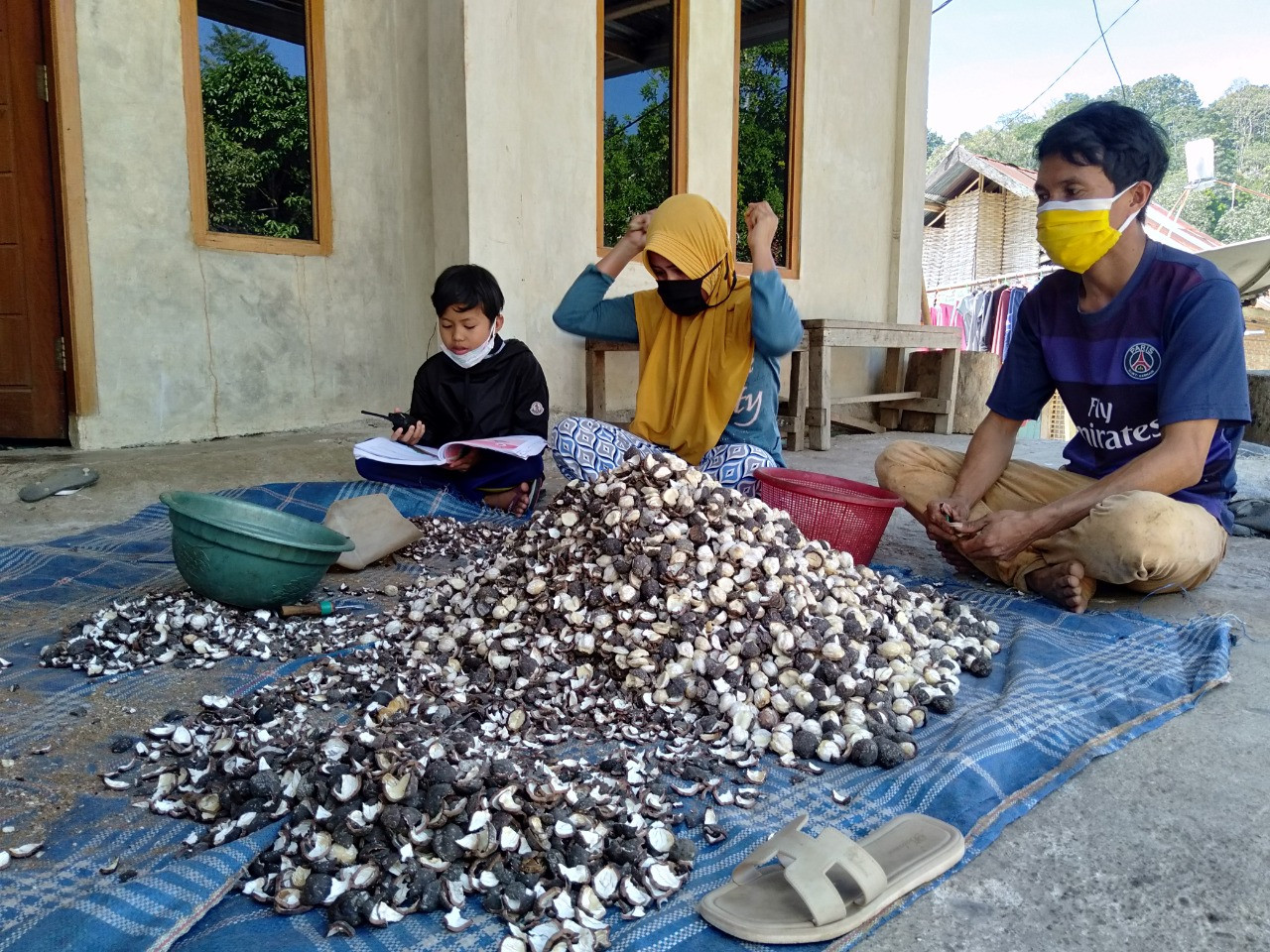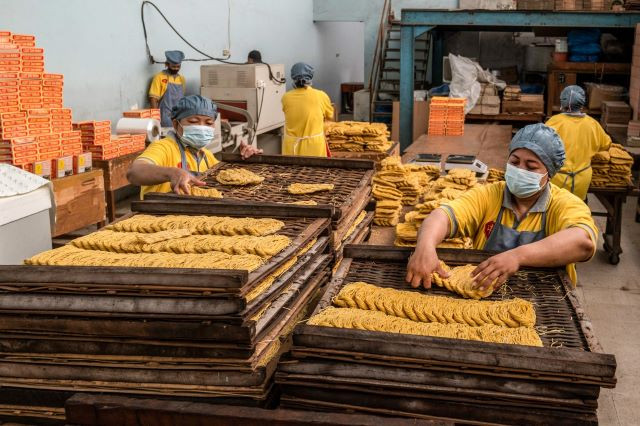Popular Reads
Top Results
Can't find what you're looking for?
View all search resultsPopular Reads
Top Results
Can't find what you're looking for?
View all search resultsPoor internet connection, lack of devices hinder online learning: Ministry
According to education ministry data, 51 percent of early education to middle school students living in the outermost, border and disadvantage areas do not have a reliable internet connection.
Change text size
Gift Premium Articles
to Anyone
 A student, under the supervision of his parents, does his school work at home in Punik, West Nusa Tenggara as he receives instructions from a teacher through a walkie-talkie. (JP/Panca Nugraha)
A student, under the supervision of his parents, does his school work at home in Punik, West Nusa Tenggara as he receives instructions from a teacher through a walkie-talkie. (JP/Panca Nugraha)
P
oor internet connection and lack of digital device accessibility are still impeding distance learning as the pandemic continues.
According to Education and Culture Ministry data, 51 percent of early education to middle school students living in the outermost, border and disadvantage (3T) areas do not have a reliable internet connection. In addition, 27.8 percent of them said they had access to a laptop or computer but the devices were also unreliable.
Meanwhile, 20 percent and 18 percent of students outside of 3T areas also do not have access to computers and smartphones, respectively.
“The education sector is one of the sectors that talk about digital transformation the most, but it is among sectors with low digitalization,” said the ministry’s data and education technology development expert, Gogot Suharwoto, during the Pintek EduTalk webinar on Monday.
Read also: State distance learning plan fails to account for poor, disconnected students
He went on to say that by providing better internet connection and devices for students and teachers to improve digital learning, Indonesia could see improved human capital and technology readiness, which in turn would support the country’s position as the fifth-largest economy by 2045.
Indonesia’s internet economy is the biggest in Southeast Asia at US$44 billion this year, and is expected to reach $124 billion in 2025, according to the e-Conomy SEA 2020 study by Google, Temasek and Bain & Co.
The study also suggests that education technology (EdTech) is among blooming sectors amid the slowdown of internet economy growth due to the pandemic. EdTech tools adoption has more than tripled during the coronavirus outbreak in the Southeast Asia region, the report said.
Schools nationwide have moved to online learning following President Joko Widodo’s instruction in March for people to work, study and pray at home to curb the coronavirus spread.
Education and Culture Minister Nadiem Makarim announced on Nov. 20 that he would grant local administrations, schools and parents the authority to decide whether they would resume in-person instruction for the remainder of the 2020-2021 school year, which ends in July of next year.
Read also: Regulators, fintech companies work to balance innovation, regulation
“Even when schools gradually reopen next year, schools are facing cashflow problems to keep up with operations,” said fintech platform for education Pintek cofounder and president director Tommy Yuwono.
Lack of funding will further deteriorate the schools and students access to better internet and devices.
Early findings of a joint study by Pintek and non-profit organizations Edufinance and RISE shows that schools need more accessible funding as they are heavily relying on school operational assistance funds, which is disbursed in four stages. Additionally, he said parents' ability to pay tuition had also decreased by 30 to 50 percent due to the pandemic.
“Moving forward with education 4.0 is a must for Indonesia. Schools can help the process by training teachers and school administrators in digital literacy,” Tommy said. “The government should also expand internet access and provide better infrastructure as it is still limited in some areas.”









